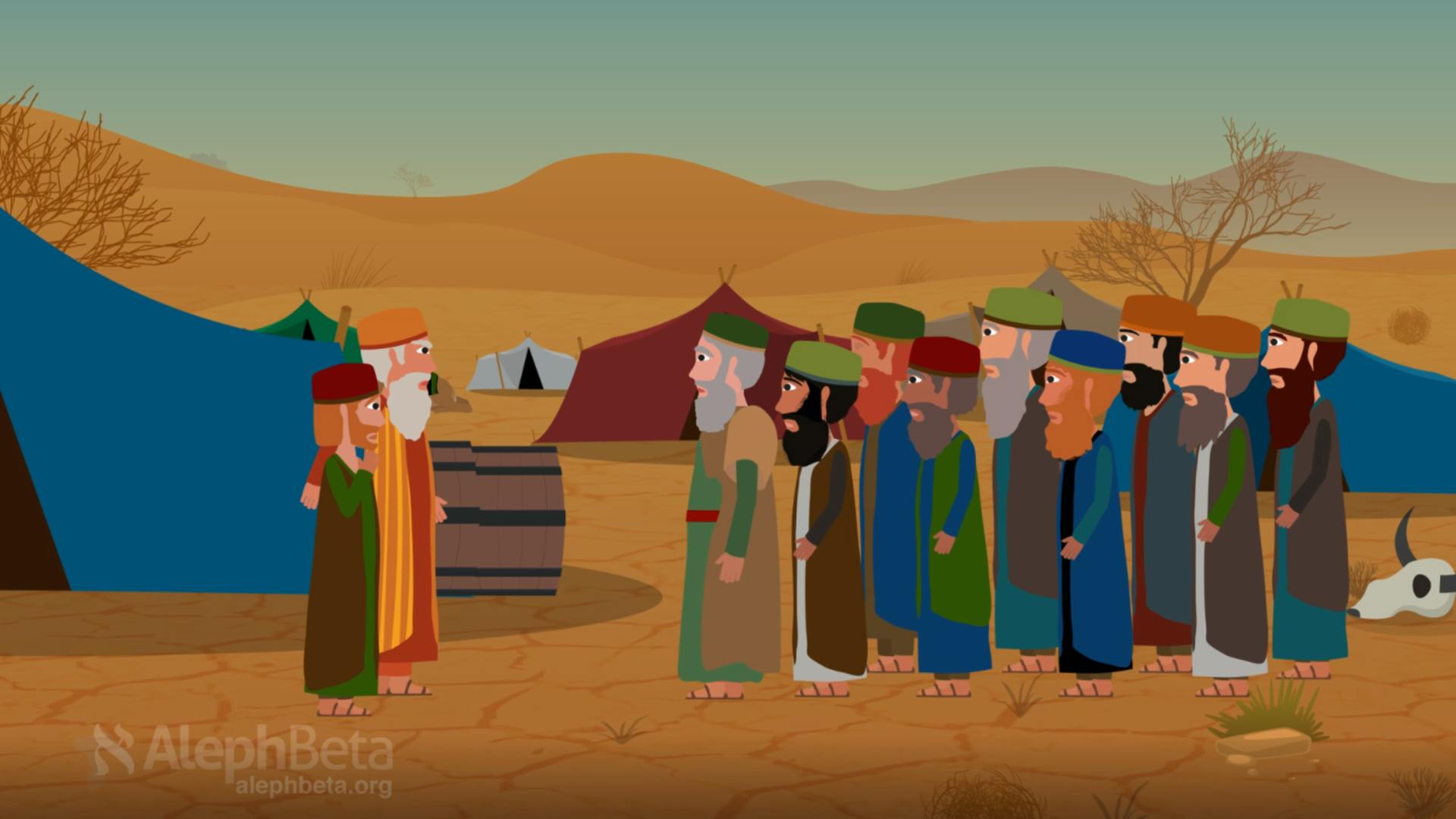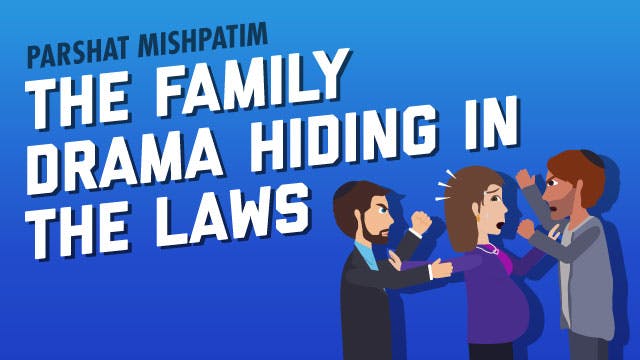
MISHPATIM
January 13, 2022
Stories Become Laws, Why Now?
Ami Silver
Scholar
If you watched my video on parshat Mishpatim, "The Family Drama Hiding In The Laws," and the epilogue to that video, you know that there are a whole bunch of parallels between the laws in Mishpatim and the story of Joseph and his brothers. This is nothing new; at Aleph Beta, we’ve noticed time and time again that the stories of the Torah become its laws. That oftentimes, when we take a close read of the Torah’s seemingly dry legal verses, they seem to echo earlier stories. Sometimes, the laws can teach us new ways to understand those familiar stories. Other times, it seems as if the laws even emerge from those stories in order to guide us towards a better future, and to protect us from repeating the mistakes of the past.
[To see other examples of this idea in action, take a look at Rabbi Fohrman’s videos on the laws of the city of refuge and the laws of the hated wife. Rabbi Fohrman also explored these ideas in connection with some of the laws in Mishpatim, and in an epilogue to that video he offers another take on the Joseph narrative. Check it out here.]
But once we’ve noticed how this plays out in the laws of Mishpatim, the next question we need to ask is – why now? Why is this all here, in this parsha, of all places? As we mentioned, from the very beginning of the Torah until this point, it’s been all stories. Mishpatim is the first parsha that interrupts the Torah’s narrative with a long list of laws. Why is that? And why do Joseph and his brothers pop up here?
The Meaning of Mishpatim
I think we can find a clue if we pay attention to the broader context here. The last thing we read about was the revelation at Sinai, and that itself was a culmination of the story of the Exodus from Egypt. Now think to yourself, why would it make any sense to hear about Joseph and his brothers at this point? Isn’t that story in the distant past? Well, I think the answer is – yes, and no. Because while it’s true that Mishpatim is taking place hundreds of years after the Joseph saga, let’s remember how we got here. The whole Egypt story began with the sale of Joseph. Joseph was actually the first Israelite who was enslaved in Egypt. He then became second in command to Pharaoh, which ultimately led to his entire family following him down to Egypt during the years of famine. But then… they never left. A generation later, a new Pharaoh rose to power “who did not know Joseph” (Shemot 1:8) and he made the Israelites his slaves. This was the story until the Exodus, which brings us to where we are now, in Mishpatim.
So in a sense, the Exodus from Egypt is actually the redemption of the entire Joseph story. Joseph and his brothers became stuck in Egypt. Their descendents were enslaved for hundreds of years. And only now, the nation is finally taking their next step into a new future. Rabbi Fohrman treats this idea at length in his course on the meaning behind the Passover offering, and I encourage you to take a look at that course for a deeper understanding of this arc of history. But for the purposes of understanding Mishpatim, maybe it really does make sense that we are given clues, messages, to the Joseph stories, in the first set of civil laws that the Israelites receive after the Exodus. Because if our theory is true, and the laws of the Torah are seeking to repair the mistakes of the past, then these mistakes of Joseph and his brothers are the most important ones for the nation to be cautioned about at this time.
Mishpatim In English
I think it’s also interesting that the parsha itself, and the laws within it, are called mishpatim. There are many names for laws, and this is a very specific one. The word mishpat/משפט actually means “justice,” which seems to imply that these aren’t just laws about what we should or should not do. They’re laws that are about restoring the balance of justice when it’s been broken. We can see this in many of the laws themselves. If you break someone’s property, this is what you owe them. If you injure or harm someone, this is how you must repay them, or this is your punishment. These are all laws about reparations.
But in the larger view, maybe there’s a national reparation that’s taking place. This nation, this family, made some mistakes that led to devastating consequences. And only now are they being freed from the effects of the sale of Joseph. These laws are reminding us of how we got here, and how we ended up as slaves in the first place. So perhaps by teaching these laws at this very moment, and by evoking the Joseph story on the heels of the Exodus, God is showing the people a path forward that will prevent them walking down the road that led to their exile.
Learn more about other Jewish topics at Aleph Beta by checking out guides like The Tabernacles Colors, Esau's Wives, and God Is My Shepherd.
